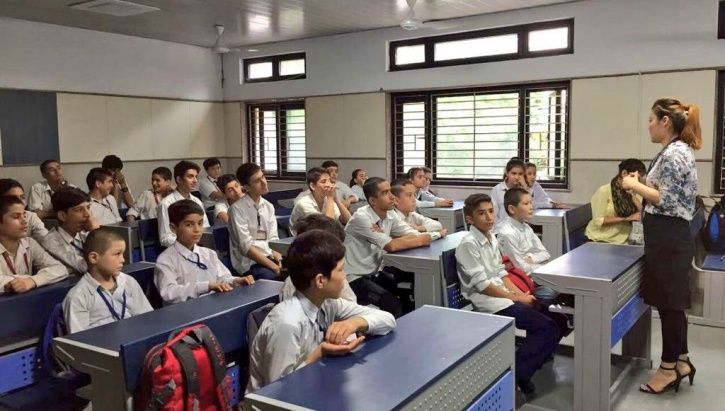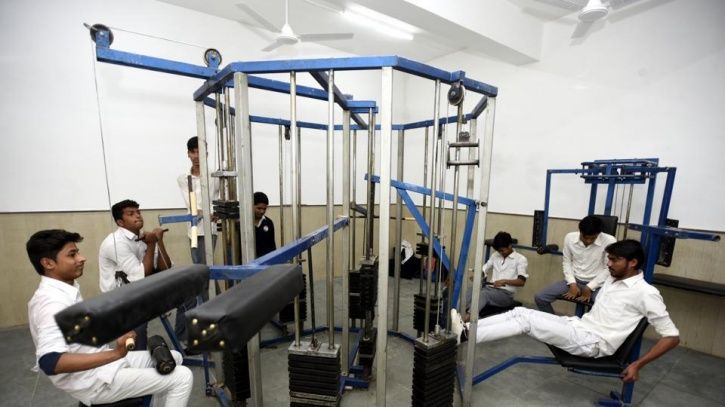Access to quality education is among the top demands of the people across India. Parents want their children to get enrolled in good institutes that don’t burn a hole their pockets and ensure quality education.
In Delhi, high cut off and hefty amount of fee in private institutes – that most can’t afford without a loan – is a huge problem for the Capital’s residents. Students from other states come to Delhi – with better marks – and get admission in the colleges here, leaving the students from the city with no choice, but to pursue distant education courses.
Over the years, Delhi government schools have received a face lift, courtesy – Atishi. She has been credited as being the brain behind education reforms initiated by the state government since 2015.
After AAP came to power, the national capital witnessed a considerable difference in education and facilities in school.
In an interview with Indiatimes, Atishi spoke about the much-needed reforms for the betterment of education system in India.
Contents
1) Providing Basic Education To All Children
“Funding to student fellowships and scholarships have reduced drastically in the past few years. This is exactly what was done to government schools in the early 90s, when school budgets were slashed and employment opportunities tanked and the repercussions of the same are felt now.
“Higher education in India is now facing the same fate. Private universities that charge hefty fees are mushrooming and funding of public universities is tanking,” says Atishi, emphasising on soaring fee structures in private universities.
She says very few Indian families can afford the fee structure of private universities. Over a period of time, cut-offs in Delhi University have reached an all-time high and consequently, students are unable to get admissions.

TWITTER/ATISHI
“Where would a regular student coming from a middle-class family background go and study?” she asks.
2) Basic Inequity
Atishi says the first problem that must be tackled is inequity. The private schools in country are flourishing because government schools are in dire condition.
“Effectively, the fate of every child is decided, when they are just three years of age. Parents, who have the ability to send their children to private schools, ensuring they have a good future. There are millions of families in India, who cannot send their children to such schools. If they do not have that kind of money, the children go to schools, which hardly meet the essentials of education, efficiently determining how their future will be, she adds.
According to Atishi, it is absolutely necessary to fight unfairness. To ensure that every child in this country has a chance to fair education and future.
3) Proper Infrastructure
The Delhi government has provided a much-needed facelift to infrastructure in government schools and made them on a par with private schools. The quality of education imparted and teaching methods adopted in government schools are helping students to get the best.
However, this is just the beginning.

“Government schools face shortage of funds and reel under poor infrastructure. The funds meant for schools do not reach ground level. There is no accountability whatsoever. Governments across the country are spending money of education. Since the Fifth Pay Commission was enforced, teachers are getting good salary and get paid on time. A principal of a school gets paid close to One lakh per month, a secondary school teacher draws a salary of but despite this they are not working,” says Atishi, emphasising that unless governments are asked questions and held accountable for their actions, little can change.
4) Perception Towards Government Schools
The perception of people towards government schools is changing slowly.
“I believe Delhi is the only state, where the perception of people towards government schools is changing. It is the only state where people are actually taking their children out from private schools and admitting them in public schools,” she says.
Also, pointing to the belief that the perception towards government schools will only change once government schools are made better.
Delhi government has introduced numerous programmes to revolutionise education system. ‘Reading Campaign & Pragati, Kala Utsav, Incubation Centres For Startups, Transformative Learning Through Human Values are few of the programmes that have changed the face of education in Delhi. No doubt, if these programmes are implemented at pan-India level, the results would be exemplary.
Will Atishi be able to deliver or not? It can only be answered, if she wins the election from southeast Delhi constituency when it goes to polls on May 12.
[“source=indiatimes”]



